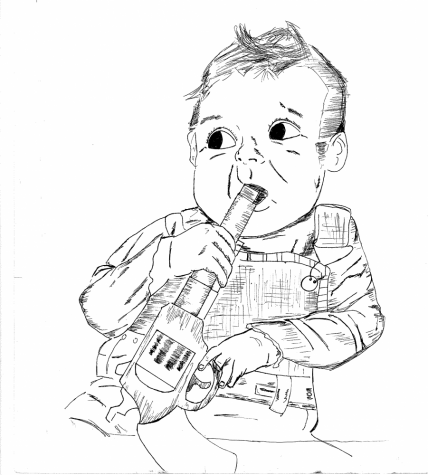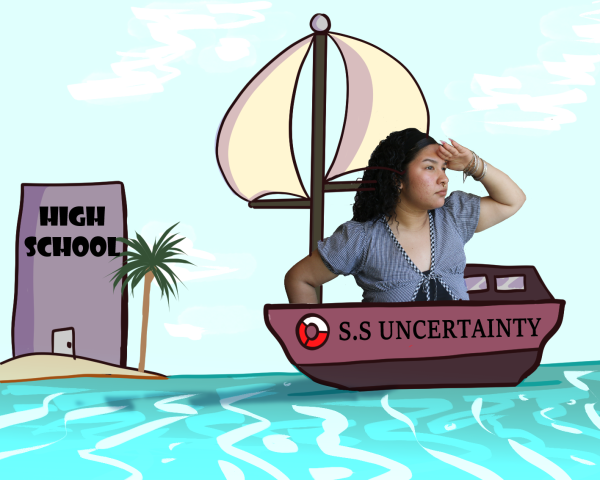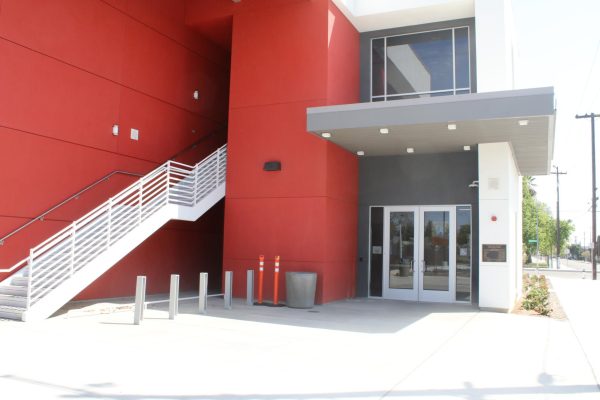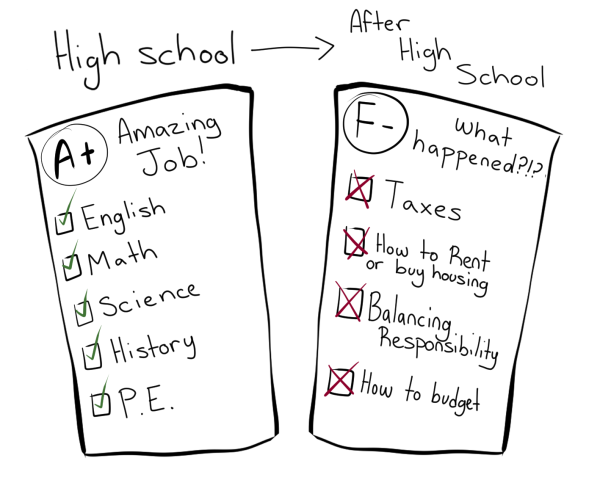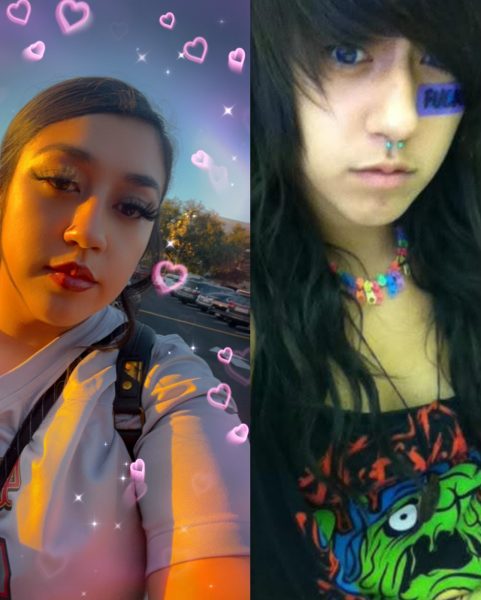The Tea: The Darkness—Why We Report the Darkest Stories
So the world is basically bad.
We’re living a daily national crisis. When our president isn’t tweeting deranged nonsense about hurricanes he’s inviting the Taliban to Camp David on 9/11. No, really.
Plus, there’s the climate catastrophe. Plus the ever growing disparity between rich and poor. And structural racism. Misogyny. Extreme gun violence.
Not to mention every day crime, terrorism, war, and destruction.
Democracy is sweating, our morale is on life support, and our oceans are rushing in to give us a really long, suffocating hug.
And in the midst of everything, the Rampage gets emails and comments every semester wondering why we can’t ever talk about the good stuff.
Often, our readers wonder why we don’t highlight the unsung heroes of the campus more. Why we don’t write about our wonderful musicians, our stellar professors, our artists and writers. They wonder why we’re so focused on the negative stuff: the darkness.
But we do, and I can’t stress this enough, actually write about the good stuff. Literally all the time. We write glowing profiles about ASG presidents and our professors, and we send our reporters to cover concerts and plays on the regular.
Yet the world keeps turning. We profiled former ASG President Christopher Washington, wrote that he was dedicated and driven, someone who came from nothing and rose to prominence in his community.
And then he allegedly got drunk on campus and engaged in sexual activity in one of the restrooms. He was banned, arrested, and pled no contest to a felony charge of dissuading a witness.
It is not that journalists seek out badness in the world, it is that badness is irrevocable, and impossible to disentangle from the context of our lives.
We wrote a great deal about Washington. First about his lies to the Rampage, and then about his high profile scandal. It was one of our biggest stories, and drew a lot of eyes to our newspaper.
At the time, myself and other reporters wondered if it was entirely ethical to take pride in the fact that our writing was gaining momentum and support because of struggle and strife in someone else’s life.
There is something to be said for the “sensationalist” nature of local news. Reading crime reporting can make it feel like the world is getting darker and darker, even though violent crime has been on a steady decline since the 1990s, according to “Why the Crime Drop?” a study by Graham Farrell, Nick Tilley, and Andromachi Tseloni.
Readers aren’t the only ones that worry about journalism. We see ourselves as bright lights in dark corners, exposing the truth for the people and making the world better. But on our darkest days we wonder if exposing the darkness is worth it, if there isn’t a little bit of exploitation that comes with the exposure.
I often think about Anton Ego, the food critic from Pixar’s “Ratatouille.” Stick with me here, it’s going to make sense.
In the film, Ego says “[Critics] thrive on negative criticism, which is fun to write and to read.” I’ve always felt a little attacked by that quote. I’ve wondered if journalists thrive on negativity, if we’re just the critics of reality.
The negativity draws eyes because it is legitimately interesting. It draws our interest because it’s aberrant—it is a wrongness, an unbalancing of scales: a crime committed, a hidden scandal. And some part of us wants it to be fixed.
Most journalists would not admit this. We’re supposed to be endlessly objective, like machines.
We don’t talk about solutions journalism enough. It’s an approach where a journalist documents both a persistent problem in society (homelessness, for example), but also documents the solutions to that problem, and moreover the people that are working tirelessly to fix that problem.
The Rampage did that when we wrote about food insecurity in the Central Valley, and how it affects students. We wrote not just about the hunger, the statistics, and the grim realities of poverty, but also about the people: the real people caught up in that hunger, and also the people trying to help them.
Because the big secret about the darkness is that people are living in it. Those people are the easiest people to forget. A journalist’s eye isn’t always driven by nobility—it’s often driven by deadlines, clout, and the guilty pleasures of scandals and intrigue.
But it is driven. We want to learn, and to know. And we want the world to shine. We delight in good art, and good people, and good things happening in the world.
But the darkness is impossible to ignore, because to ignore it is to ignore the people it shrouds, clouds, and exploits.
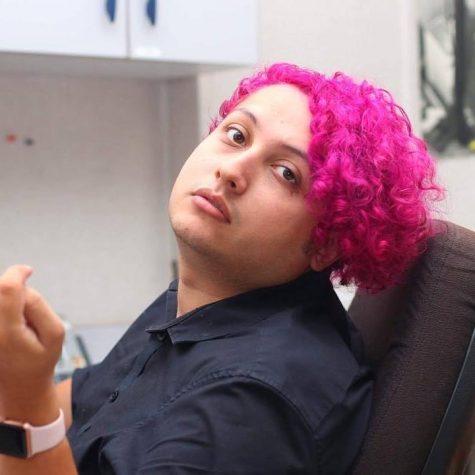
Tommy Tribble is the 25-year-old editor in chief of the Rampage, formerly the opinion editor. Tommy is an English major, a writer, an aspiring novelist,...



